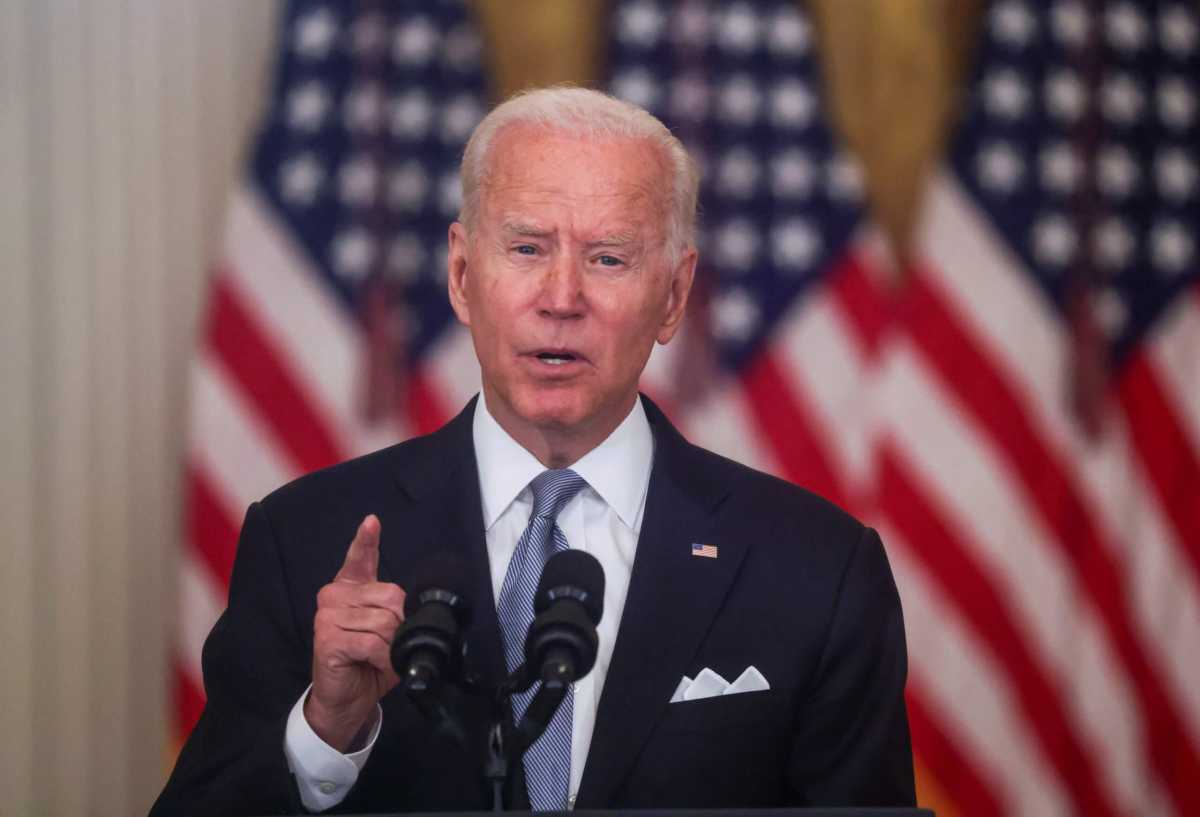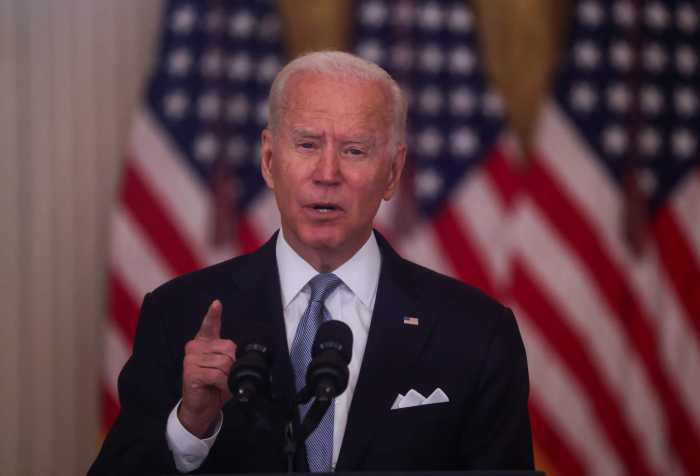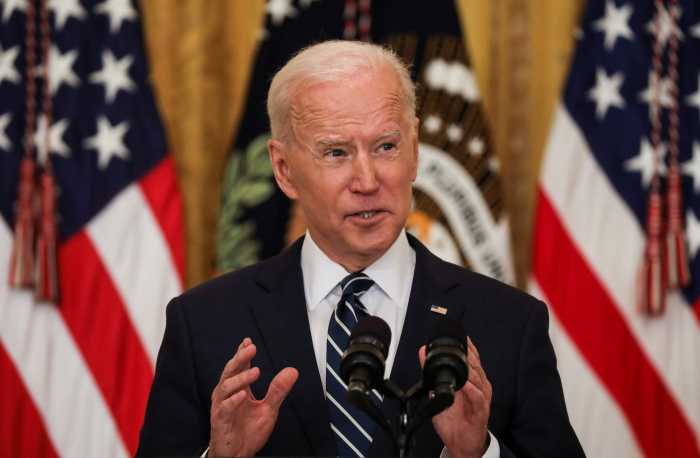President Joe Biden is brushing off criticism of his administration’s chaotic Afghanistan withdrawal because he and his aides believe the political fallout at home will be limited, according to White House allies and administration officials.
Biden and his top aides argue they are managing an evacuation mission as well as could be expected given the faster-than-anticipated takeover of the country by Taliban insurgents, and are seeking to draw attention back to the choice to get U.S. troops out of the country.
The strategy is based on internal and public polling that shows the Afghanistan withdrawal had been by far the most popular decision Biden has made, even though the issue was not central for most voters.
“The public opinion is pretty damn clear that Americans wanted out of the ongoing war and don’t want to get back in. It’s true today and it’s going to be true in six months,” said one Biden ally. “It isn’t about not caring or being empathetic about what’s going on over there, but worrying about what’s happening in America.”
Biden has faced criticism even from some fellow Democrats for his handling of the crisis.
But White House officials believe Americans’ horror over graphic images of the chaos in Kabul and pleas from Afghans who fear they will be killed by the Taliban will morph into support for the president’s decision to pull troops from the country by Aug. 31 after a 20-year war.
They expect the Afghanistan story to recede from the headlines, replaced by the resurgence in COVID-19 cases, the economic recovery and other issues, people familiar with the matter said.
A White House spokesperson declined to comment.
Biden was scheduled to deliver remarks on Afghanistan at the White House at 1 p.m. on Aug. 20. White House spokeswoman Kate Bedingfield, in an MSNBC interview on Friday, did not say whether the president would take questions from reporters.
Biden aides honed talking points weeks ago to be used even in the worst-case scenarios of a withdrawal, some of which have come to pass, including emphasizing that leaving Afghanistan was the right decision.
“The idea that somehow, there’s a way to have gotten out without chaos ensuing, I don’t know how that happens,” Biden told ABC News on Wednesday. “There is no good time to leave Afghanistan. Fifteen years ago would’ve been a problem, 15 years from now. The basic choice is am I going to send your sons and your daughters to war in Afghanistan in perpetuity?”
In recent days, Biden has also assailed the Afghan military for failing to fight, denounced the now-ousted Afghan government and declared that he inherited a bad withdrawal agreement from his Republican predecessor, Donald Trump.
The strategy has obvious risks, political experts say.
“The concern is that it’s going to undercut his credibility as commander in chief,” said Jim Manley, once a top aide to former Democratic Senate Majority Leader Harry Reid. “If the Taliban revert to what they’ve done in the past, and I assume that’s going to be the case, it’s going to be a lot of bad images coming out of that country.”
Inadequate response
The Afghanistan messaging is increasingly at odds with an emerging consensus within the administration that the White House, Defense and State departments as well as the U.S. intelligence community’s planning for the current situation was inadequate and needs to be fully reviewed – once the mission of evacuating key people from Afghanistan is complete and the 5,200 U.S. troops now in Kabul are gone.
“We’re at the Pentagon and even we know it could have been better,” said one official. “A lot better.” Members of the U.S. Congress also plan to investigate what went wrong.
Public opinion, at least for now, is mixed. A majority of both Republican and Democratic voters say the swift collapse of the Afghan government “is evidence why the U.S. should get out of the conflict”.
Reuters/Ipsos polling this week found that 31% of American adults agreed that the United States should continue its military operations in Afghanistan, up from the 25% who felt the same way in a 2012 poll.
Yet Ipsos polling conducted on Monday also showed fewer than half of Americans liked the way Biden had steered the U.S. military and diplomatic effort in Afghanistan this year. They currently rate his performance worse than the other three presidents who presided over the United States’ longest war, George W. Bush, Barack Obama and Trump.
Biden’s overall approval sank to 46% of American adults in Reuters/Ipsos polling, the lowest recorded in weekly polls since he took office in January.
Republicans, including Trump, have started weaponizing the withdrawal as an issue to undermine faith in Biden as commander in chief.
Most Democrats are likely to embrace public support of the withdrawal decision, and the issue should die down before the November 2022 congressional elections, said one adviser working on Democratic congressional campaigns.
She added, however: “The Biden administration will likely have to defend every negative headline that comes out of Afghanistan during his tenure, so that is a real unknown.”



































